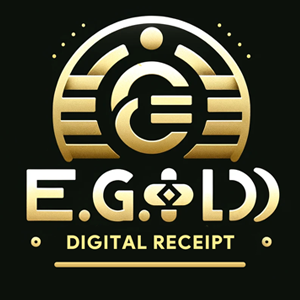As Bitcoin continues to gain traction as a viable form of digital currency, its use for purchasing tangible assets like gold coins has become increasingly popular. Gold coins represent a timeless investment and store of value, while Bitcoin offers a modern, decentralized payment system. The ability to combine these two assets provides investors with an innovative way to diversify their portfolio and hedge against market volatility. In this guide, we’ll walk you through everything you need to know about buying gold coins with Bitcoin.
Why Buy Gold Coins with Bitcoin
Diversification of Assets
Gold and Bitcoin represent two different worlds of investment. Gold is a traditional, stable asset, while Bitcoin is a volatile yet high-growth digital currency. Buying gold coins with Bitcoin allows you to balance risk and security in your investment strategy.
Hedge Against Inflation
Both Bitcoin and gold are seen as hedges against inflation. However, gold has been used for centuries to preserve wealth and its value is less susceptible to market sentiment. By using Bitcoin to purchase gold coins, you secure your wealth in a historically stable asset.
Ease of Transactions
Bitcoin transactions are fast, secure, and borderless. This makes purchasing gold coins with Bitcoin a convenient option, especially for those who wish to bypass traditional banking systems.
Anonymity and Privacy
Bitcoin allows you to maintain a higher level of privacy compared to traditional payment methods. If privacy is a concern, buying gold coins with Bitcoin can be a discreet way to acquire physical gold.
How to Buy Gold Coins with Bitcoin
Step 1: Choose a Reputable Gold Dealer
Begin by selecting a trustworthy gold dealer that accepts Bitcoin as a payment method. Reputable dealers often have clear policies regarding Bitcoin transactions and provide secure platforms for purchases. Examples include JM Bullion, Bitgild, and APMEX.
Step 2: Select Your Gold Coins
Gold dealers typically offer a variety of gold coins, such as American Eagles, Canadian Maple Leafs, Krugerrands, or Australian Kangaroos. Research the type of gold coin you want to purchase, keeping in mind factors such as weight, purity, and historical significance.
Step 3: Check the Bitcoin Price and Exchange Rates
Since Bitcoin's price is volatile, gold dealers calculate the equivalent amount of Bitcoin needed for the purchase at the time of the transaction. Make sure to verify the current exchange rate and confirm the final amount of Bitcoin required for your desired gold coins.
Step 4: Add to Cart and Proceed to Checkout
After selecting your gold coins, add them to your cart on the gold dealer’s website. Proceed to checkout and choose Bitcoin as your preferred payment method. Most platforms will generate a unique Bitcoin wallet address or QR code for the transaction.
Step 5: Complete the Bitcoin Payment
Use your Bitcoin wallet to send the required amount of Bitcoin to the address provided by the dealer. Double-check the wallet address to avoid errors. Once the transaction is confirmed on the blockchain, the dealer will typically begin processing your order.
Step 6: Arrange for Shipping or Secure Storage
After completing the payment, you can choose to have the gold coins shipped to your address or stored in a secure vault, depending on the services provided by the dealer. Ensure that the shipping is insured and that the dealer uses reliable logistics companies.
Benefits of Buying Gold Coins with Bitcoin
Accessibility
Bitcoin enables individuals across the globe to purchase gold coins without being limited by currency exchange rates or banking restrictions. This makes gold coins accessible to a wider audience.
Speed of Transactions
Bitcoin transactions are processed quickly, often in minutes. This eliminates delays commonly associated with wire transfers or other traditional payment methods.
Low Transaction Costs
Compared to traditional payment systems, Bitcoin transactions can be more cost-effective, especially for large purchases. Many gold dealers also waive additional processing fees for Bitcoin payments.
Inflation-Resistant Investments
Gold coins purchased with Bitcoin create a dual inflation-resistant investment. Gold protects against fiat currency devaluation, while Bitcoin offers high-growth potential, especially in uncertain economic conditions.
Things to Consider When Buying Gold Coins with Bitcoin
Bitcoin Volatility
The price of Bitcoin can change rapidly, impacting the cost of your purchase. Always check real-time exchange rates before completing a transaction to avoid surprises.
Dealer Reputation
Ensure that the dealer is legitimate, has a strong track record, and offers secure transactions. Look for customer reviews and ratings to gauge their reliability.
Fees and Taxes
Bitcoin transactions often come with minimal fees, but you should also consider taxes that may apply to your purchase of gold coins. Consult a tax professional to understand your obligations.
Shipping and Storage
Gold coins are valuable and require secure storage. Decide whether to store your gold in a personal safe, bank vault, or dealer-provided storage solution.
Regulatory Compliance
Check local laws and regulations regarding both Bitcoin and gold purchases. Some countries may have restrictions or reporting requirements for these types of transactions.
Advantages of Gold Coins Over Other Gold Investments
Gold coins are portable, tangible assets that hold intrinsic value. Unlike gold ETFs or digital gold, gold coins provide direct ownership, giving you complete control over your investment. They also offer collectible value, which can appreciate over time based on rarity and condition.
FAQs About Buying Gold Coins with Bitcoin
1. Can I buy any type of gold coin with Bitcoin?
Yes, most gold dealers that accept Bitcoin offer a variety of gold coins, including popular options like American Eagles, Canadian Maple Leafs, South African Krugerrands, and more. However, availability may vary depending on the dealer and region.
2. Is buying gold coins with Bitcoin safe?
Yes, buying gold coins with Bitcoin is generally safe if you purchase from a reputable dealer. Ensure that the platform you use has strong encryption, a secure checkout process, and positive customer reviews.
3. Are there any fees when buying gold coins with Bitcoin?
While Bitcoin itself often has minimal transaction fees, some gold dealers may charge a small processing fee. Additionally, you may incur network fees when transferring Bitcoin from your wallet to the dealer’s wallet. Be sure to check the dealer's fee structure before proceeding.
4. How long does it take to complete a Bitcoin-to-gold transaction?
Bitcoin transactions are typically confirmed within minutes, but the overall process can take longer depending on the dealer's processing and shipping policies. Many dealers ship gold coins within a few business days after confirming the Bitcoin payment.
5. Are Bitcoin payments refundable if I cancel my order?
Refund policies vary by dealer. Some may offer refunds in Bitcoin, while others might issue a refund in fiat currency. Always check the dealer’s terms and conditions regarding cancellations and refunds.
6. What happens if the price of Bitcoin changes after I place my order?
Most dealers lock in the Bitcoin-to-gold exchange rate at the time of purchase. Once your order is placed, the price is fixed, regardless of Bitcoin’s fluctuations. This ensures transparency and avoids confusion.
7. Can I use other cryptocurrencies to buy gold coins?
Yes, many gold dealers that accept Bitcoin also accept other cryptocurrencies such as Ethereum, Litecoin, or stablecoins like Tether (USDT). Check with the dealer for their supported payment options.
8. Do I have to pay taxes when buying gold coins with Bitcoin?
Tax obligations vary by country. In some jurisdictions, purchasing gold coins with Bitcoin may be considered a taxable event, triggering capital gains taxes. Consult a tax professional to ensure compliance with local regulations.
9. How do I ensure the gold coins I buy are authentic?
Reputable dealers provide certifications and guarantees of authenticity for their gold coins. If you’re uncertain, you can verify the coins’ weight and purity through independent testing or by consulting a professional appraiser.
10. What are the risks of buying gold coins with Bitcoin?
The main risks include Bitcoin price volatility, potential scams from untrustworthy dealers, and regulatory uncertainties. To mitigate these risks, always research the dealer, verify their legitimacy, and monitor Bitcoin prices before making a transaction.
Gold Coins vs. Other Precious Metals for Bitcoin Buyers
Gold coins are not the only option for Bitcoin holders looking to invest in precious metals. Silver, platinum, and palladium are also popular choices. However, gold coins remain the most sought-after due to their stability, liquidity, and historical value. Silver coins may offer a lower-cost entry point, while platinum and palladium are often preferred for their industrial demand.
Tips for Storing Gold Coins After Purchase
- Personal Safe: Store gold coins in a secure, fireproof safe at home to ensure easy access while maintaining security.
- Bank Vault: Many banks offer safety deposit boxes for storing gold coins. This option provides added security but may require ongoing fees.
- Third-Party Storage: Some dealers offer insured storage solutions, where your gold is kept in a secure vault. This is ideal for larger holdings or those who prefer professional security.
- Avoid Common Mistakes: Never store gold coins in easily accessible or poorly secured locations, and avoid sharing information about your holdings with others.
Future Trends in Buying Gold Coins with Bitcoin
The growing adoption of cryptocurrency is likely to influence how investors purchase tangible assets like gold coins. As more dealers begin accepting Bitcoin and other cryptocurrencies, the process will become even more streamlined and accessible. Innovations in blockchain technology may also lead to new ways of verifying gold authenticity and ownership, further enhancing trust in these transactions.
Additionally, the emergence of gold-backed cryptocurrencies provides an interesting hybrid solution for those seeking the security of gold with the flexibility of digital assets. Platforms like Tether Gold (XAUT) and Paxos Gold (PAXG) allow investors to own gold digitally while using Bitcoin for transactions, bridging the gap between the physical and digital investment worlds.
Key Takeaways
Buying gold coins with Bitcoin is a modern, efficient way to diversify your investment portfolio. It combines the security and historical value of gold with the speed and convenience of cryptocurrency. By following a few simple steps and choosing a reputable dealer, you can use Bitcoin to acquire tangible assets that hold long-term value.
Whether you’re an experienced investor or new to the world of cryptocurrencies, purchasing gold coins with Bitcoin offers a unique opportunity to leverage the strengths of both assets. As the financial landscape continues to evolve, the synergy between Bitcoin and gold will likely play a key role in shaping the future of investing.
NOTE
This Content is the copyrighted content of EE.GOLD. All rights are reserved. You are welcome to share or use our content only by including direct links to our website. Any other form of reproduction, distribution, or use without proper attribution is strictly prohibited.
This Content is intended solely for educational purposes. The information provided does not constitute financial or investment advice.
Please note that Digital Storage Receipt, Secure Storage Solutions, and Physical Gold Sales are the only services offered by EE.GOLD.
We strictly adhere to government regulations and are firmly against all illegal financial or investment activities globally.
For further inquiries, feel free to contact us through our official channels.

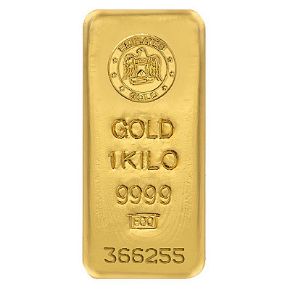
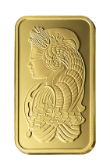
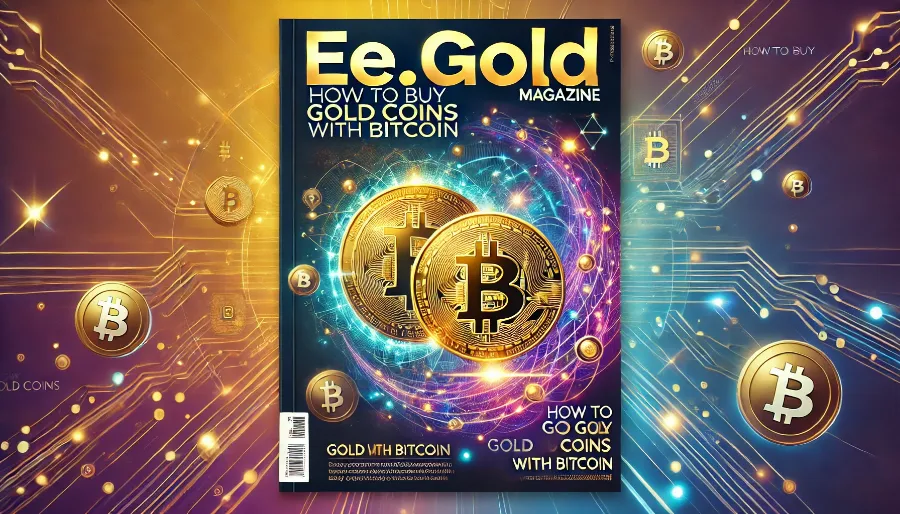
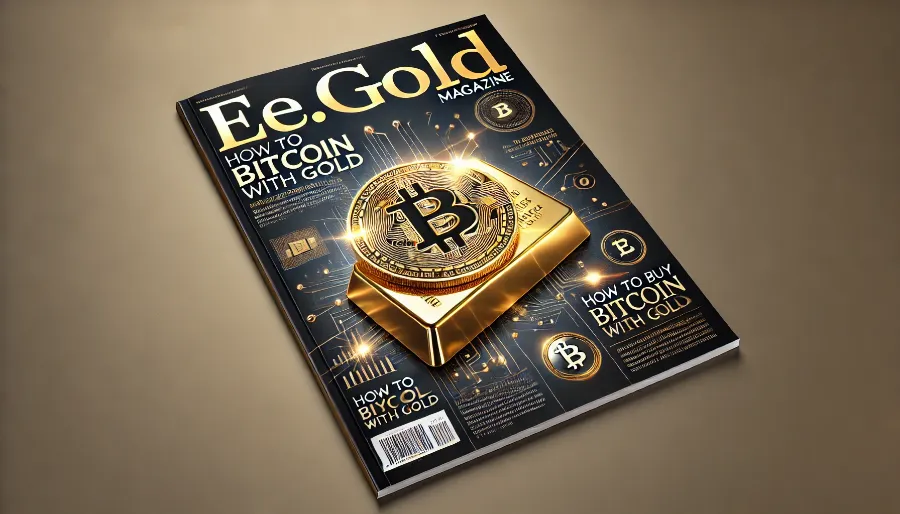
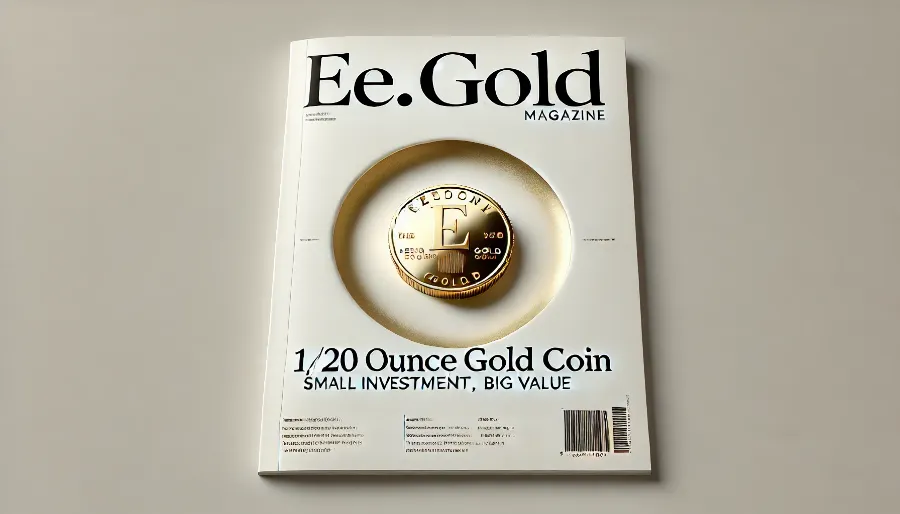
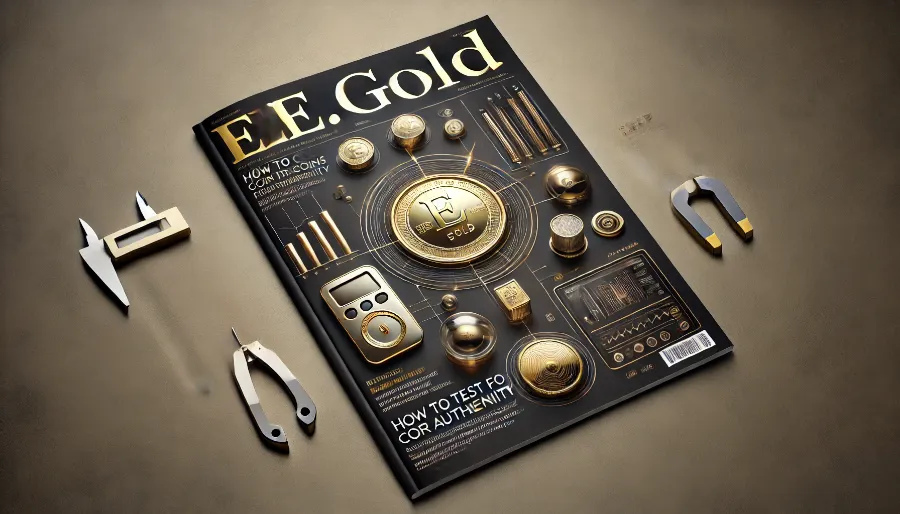
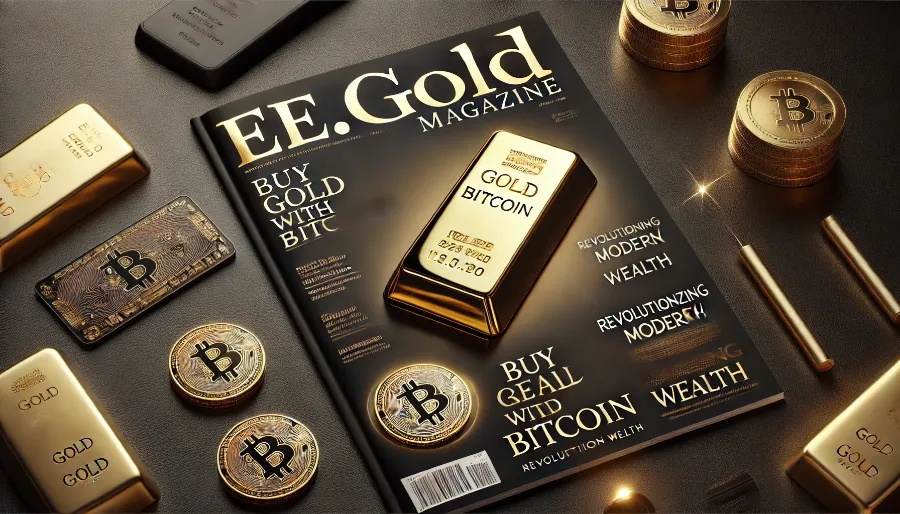
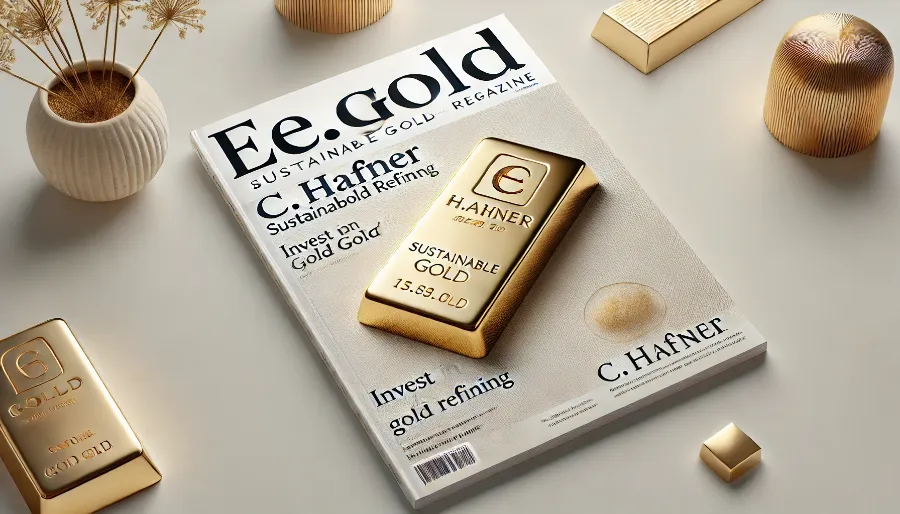
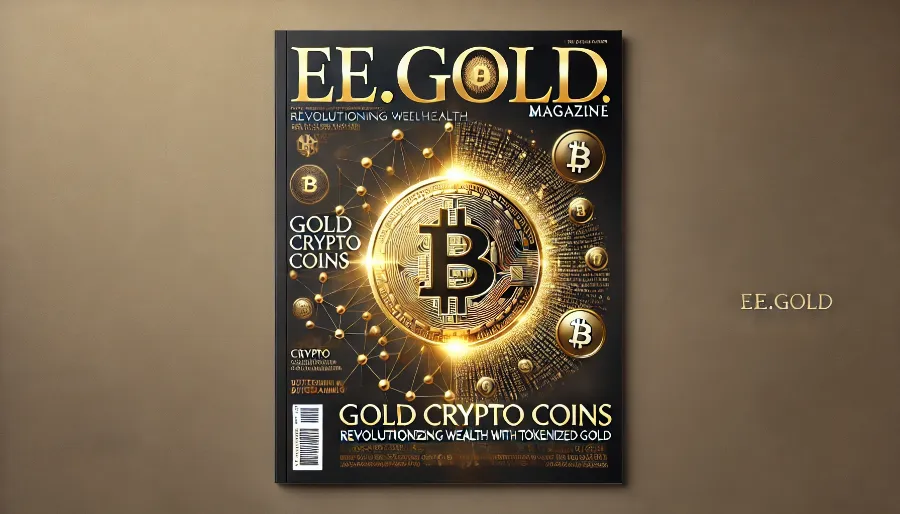
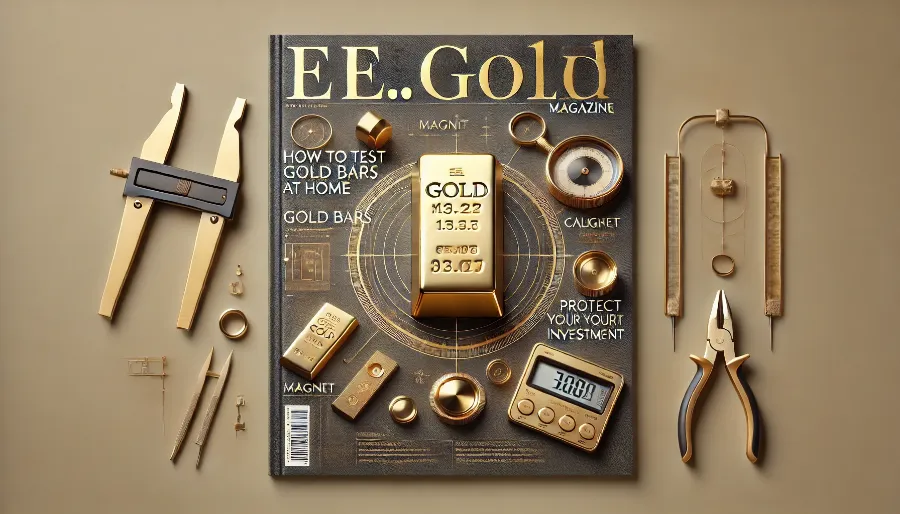
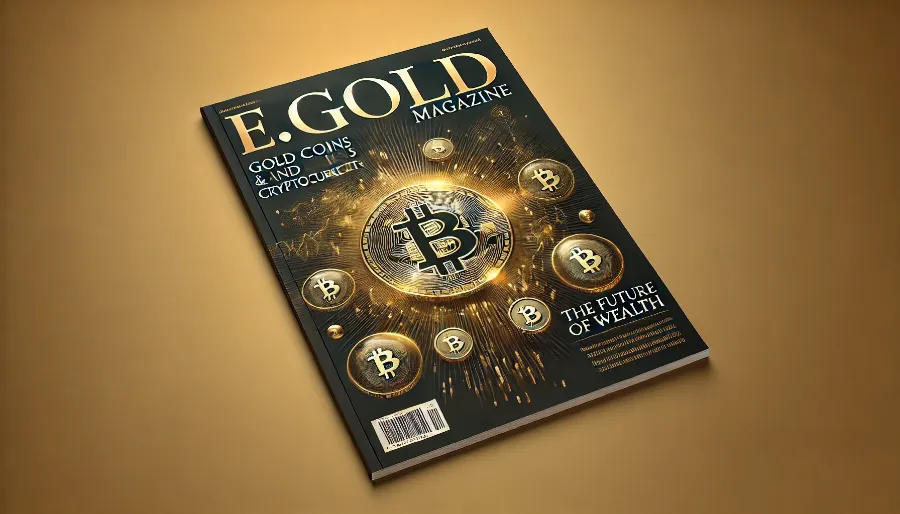
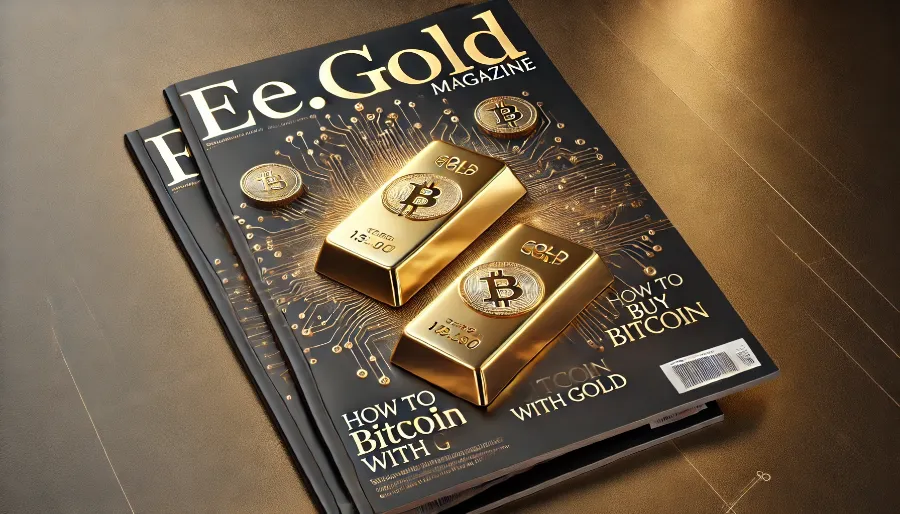




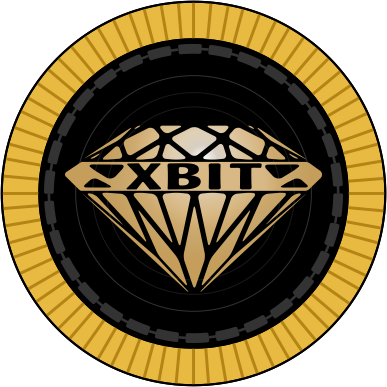


.png)

